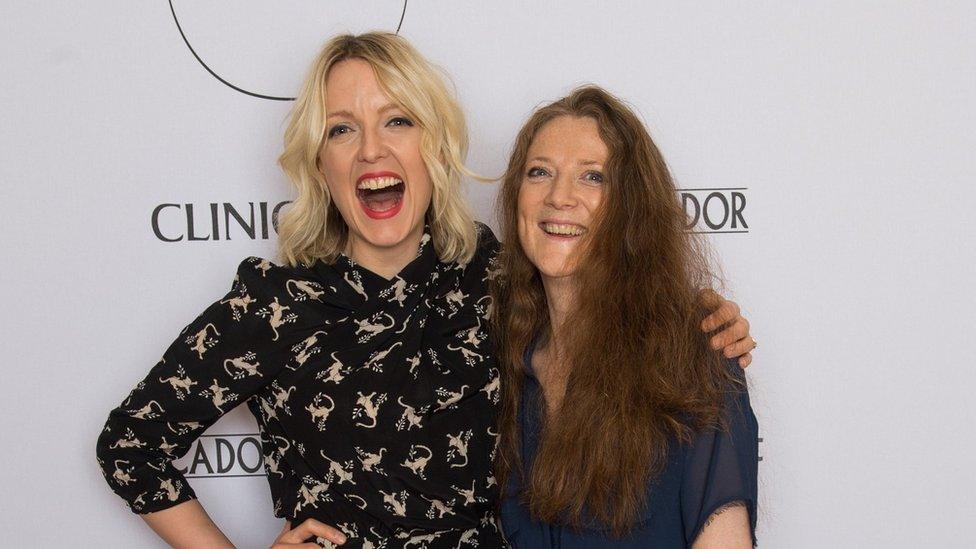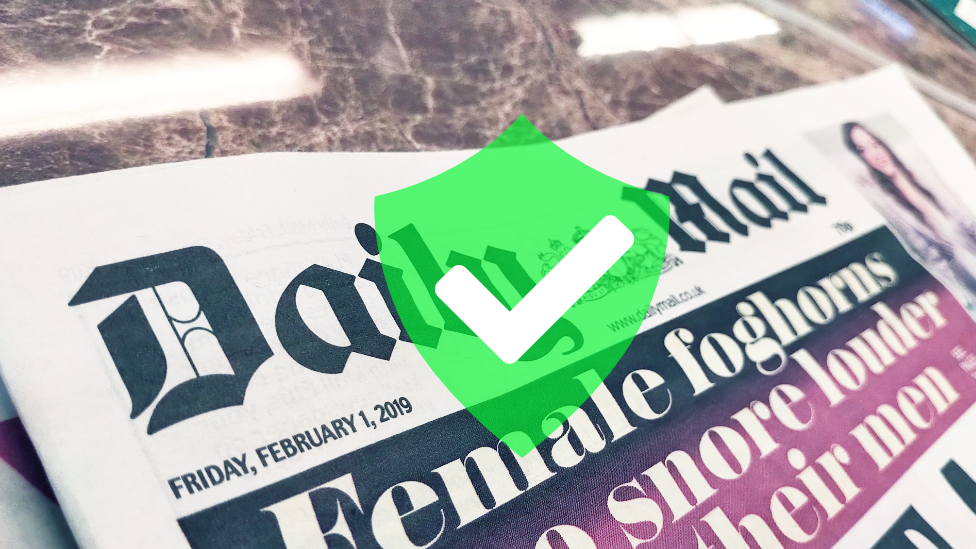The Pool women's online magazine to close
- Published

Lauren Laverne and Sam Baker founded The Pool in 2015
The editor of online women's magazine The Pool has said she is "absolutely gutted" the venture is to fold after almost four years.
Cate Sevilla said she was "heartbroken" more than 20 members of staff faced redundancy from the firm, which was co-founded by broadcaster Lauren Laverne.
Staff were not paid in January and some freelancers are owed sizeable payments.
The collapse of the firm raises questions about whether women-focused journalism can thrive online.
One industry expert said The Pool was caught in a "deadly vortex" of declining advertising revenues.
The site, styled as a "platform for women too busy to browse", went live in 2015 and signed up a collection of prominent female writers and contributors.
The Pool's editor Cate Sevilla said in a series of Twitter posts: "I don't really know what to say. I'm absolutely gutted.
"This has been an extremely frustrating situation, and I'm heartbroken for my team. For our freelancers. For our readers.
"I always wanted to work at The Pool, and I can't quite believe what's happened."
A GoFundMe page to help pay The Pool's staff and freelancers had raised more than £8,000 of a £24,000 target by Friday evening.
Eleanor Mills, chairwoman of Women in Journalism, which supports female workers in the industry, said online news websites were suffering because Google and Facebook were so dominant and took such a large share of all digital revenue, which she estimated at 95%.
Ms Mills, who is also the editorial director of the Sunday Times, said women's magazines faced pressure from beauty and fashion brands choosing increasingly to advertise with so-called "influencers"
"The Pool found itself in a deadly vortex fed by both of these trends - the unviability of online advertising supported publishing and a shake up and turndown in fashion and beauty advertising," she said.
Lauren Laverne, who resigned as a director of The Pool last year, said on Twitter: "I haven't had an official role at @thepooluk for a while, but I am extremely sad to hear about its closure.
"However I am also very proud of what we achieved. It was an honour to work alongside such an inspiring and creative team, on something people loved."
Allow X content?
This article contains content provided by X. We ask for your permission before anything is loaded, as they may be using cookies and other technologies. You may want to read X’s cookie policy, external and privacy policy, external before accepting. To view this content choose ‘accept and continue’.
Sam Baker, co-founder and former Cosmopolitan editor, who also resigned as a director of The Pool in 2018, said on Twitter: "We tried so hard and we failed. What matters now is getting the brilliant team and freelancers paid."
It comes after a month in which online publishers made deep cuts. Staff have been made redundant at a number of BuzzFeed offices, while Verizon Media Group, which owns HuffPost, has laid off hundreds of people.
Press Gazette editor Freddy Mayhew said "there seems to be no end in sight" to redundancies at online publications.
"Readers' habits are changing as they turn away from printed newspapers and magazines to get their news and features digitally," he said.
"But as the media industry moves with them, it is struggling to find a business model that can sustain its journalism.
The publication is calling on Google and Facebook to take less money from online advertising.
Mr Mayhew added: "If the likes of The Pool, Buzzfeed and HuffPost can't make digital journalism pay when they're the experts, who purely publish online with no print offering, then the industry truly is in crisis."
- Published1 February 2019

- Published1 February 2019

- Published1 February 2019